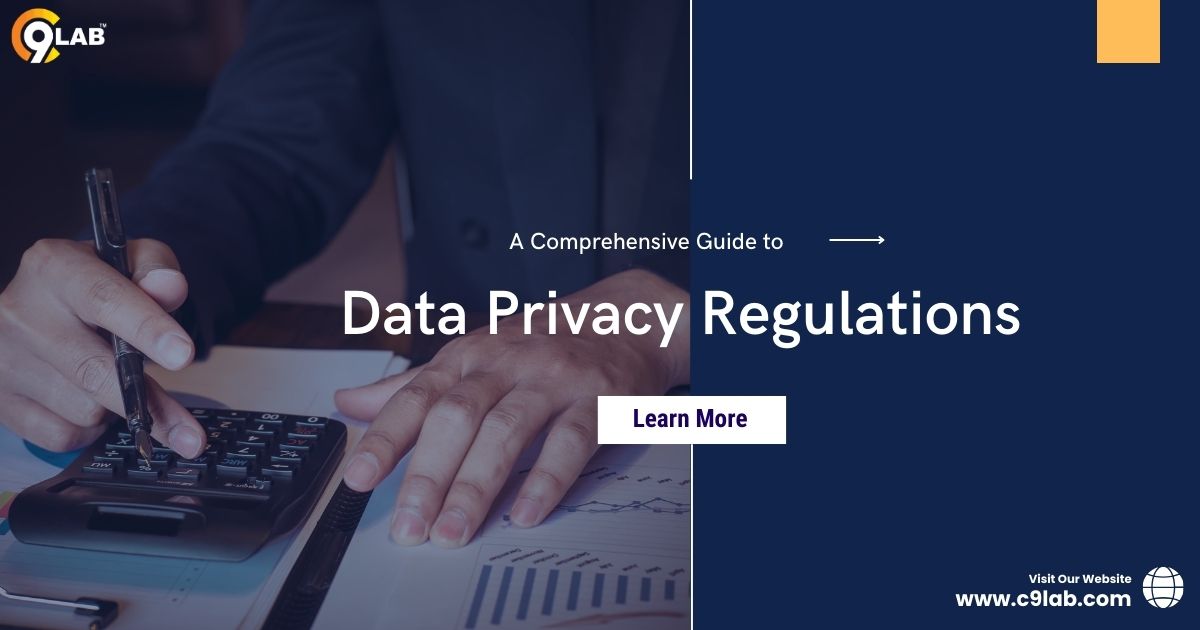
A Comprehensive Guide to Data Privacy Regulations
In an increasingly digital world, data privacy has become a critical concern for both individuals and businesses. As data breaches and cyber threats continue to rise, governments worldwide have implemented stringent data privacy regulations to protect personal information. Understanding these regulations is crucial for businesses to ensure compliance and avoid hefty fines. This guide provides an in-depth look at data privacy regulations, including key laws such as GDPR, and offers practical compliance tips.
What are Data Privacy Regulations?
Data privacy regulations are laws designed to protect personal information from unauthorized access, use, and disclosure. These regulations aim to ensure that individuals have control over their personal data and that businesses handle this data responsibly. Failure to comply with these regulations can result in severe penalties, including substantial fines and legal repercussions.
Key Data Privacy Laws Worldwide
Understanding the key data privacy laws is essential for businesses operating globally. Here are some of the most significant regulations:
1. General Data Protection Regulation (GDPR)
The GDPR is a comprehensive data privacy law enacted by the European Union in 2018. It applies to all businesses that process the personal data of EU residents, regardless of where the business is located. The GDPR sets stringent requirements for data protection, including obtaining explicit consent, ensuring data portability, and implementing robust security measures.
GDPR Compliance Tips:
- Obtain clear and explicit consent from individuals before collecting their data.
- Ensure individuals can easily access and transfer their data.
- Implement strong security measures to protect data from breaches.
2. California Consumer Privacy Act (CCPA)
The CCPA is a state-level privacy law in California that grants residents the right to know what personal data is being collected, the purpose of collection, and with whom it is shared. Businesses must also allow consumers to opt-out of data sales and delete their data upon request.
CCPA Compliance Tips:
- Provide transparent information about data collection practices.
- Offer an easy opt-out mechanism for data sales.
- Ensure consumers can request the deletion of their data.
3. Personal Data Protection Act (PDPA)
The PDPA is Singapore’s data protection law, which governs the collection, use, and disclosure of personal data by organizations. It requires businesses to obtain consent, ensure data accuracy, and implement security measures.
PDPA Compliance Tips:
- Obtain explicit consent before collecting personal data.
- Regularly update and verify the accuracy of collected data.
- Implement strong security protocols to protect data.
4. Brazilian General Data Protection Law (LGPD)
The LGPD is Brazil’s data protection law, modeled after the GDPR. It applies to all businesses that process the personal data of Brazilian residents and mandates similar requirements, including obtaining consent and ensuring data security.
LGPD Compliance Tips:
- Obtain clear consent from individuals before data collection.
- Ensure data security through encryption and other measures.
- Provide individuals with access to their data and the ability to correct it.
Best Practices for Data Privacy Compliance
To navigate the complex landscape of data privacy regulations, businesses must adopt best practices that ensure compliance and protect personal data effectively.
1. Conduct Regular Data Audits
Regular data audits help businesses understand what personal data they collect, how it is used, and where it is stored. This process identifies potential compliance gaps and areas for improvement.
Steps for Conducting Data Audits:
- Identify all sources of personal data collection.
- Map data flows to understand how data moves within the organization.
- Review data storage and security practices.
2. Implement Data Minimization
Data minimization involves collecting only the data that is necessary for a specific purpose. This practice reduces the risk of data breaches and ensures compliance with regulations that require data minimization.
Data Minimization Tips:
- Evaluate the necessity of each data point collected.
- Avoid collecting sensitive data unless absolutely necessary.
- Regularly review data collection practices to eliminate unnecessary data.
3. Enhance Data Security Measures
Robust data security measures are essential to protect personal data from unauthorized access and breaches. Businesses should implement encryption, access controls, and regular security assessments.
Data Security Tips:
- Encrypt sensitive data both in transit and at rest.
- Implement role-based access controls to limit data access.
- Conduct regular security assessments and penetration testing.
4. Provide Data Privacy Training
Educating employees about data privacy regulations and best practices is crucial for compliance. Regular training ensures that employees understand their responsibilities and the importance of protecting personal data.
Training Tips:
- Conduct regular data privacy training sessions.
- Include real-world scenarios to illustrate compliance requirements.
- Provide resources and support for employees to stay informed.
5. Develop a Comprehensive Privacy Policy
A comprehensive privacy policy outlines how personal data is collected, used, and protected. It should be transparent, easy to understand, and accessible to all stakeholders.
Privacy Policy Tips:
- Clearly explain data collection and usage practices.
- Include information about data rights and how to exercise them.
- Regularly update the policy to reflect changes in regulations and practices.
The Role of C9Lab in Ensuring Data Privacy Compliance
At C9Lab, we understand the challenges businesses face in navigating data privacy regulations. Our suite of security solutions is designed to help you achieve compliance and protect personal data effectively.
- C9Phish: Our AI-powered phishing mitigation platform helps organizations protect against phishing attacks by providing real-time detection and response capabilities.
- C9Eye: This platform offers comprehensive security monitoring, including data audits, encryption management, and access controls to ensure robust data privacy.
- QSafe: Our proactive brand protection platform helps businesses safeguard their online reputation by monitoring and mitigating potential data privacy threats.
By leveraging C9Lab’s advanced security solutions, businesses can enhance their data protection strategies and ensure compliance with global data privacy regulations.
Conclusion
Navigating data privacy regulations can be complex, but it is essential for protecting personal information and avoiding legal penalties. By understanding key regulations like GDPR and CCPA, implementing best practices, and leveraging advanced security solutions from C9Lab, businesses can achieve robust data privacy compliance and build trust with their customers.
FAQs
- What are data privacy regulations?
Data privacy regulations are laws designed to protect personal information from unauthorized access, use, and disclosure. They ensure individuals have control over their personal data and mandate businesses to handle this data responsibly. - Why is GDPR important for data privacy?
The GDPR sets stringent requirements for data protection, including obtaining explicit consent, ensuring data portability, and implementing robust security measures. Compliance with GDPR is crucial for businesses handling EU residents’ data. - How can businesses ensure compliance with CCPA?
Businesses can ensure compliance with CCPA by providing transparent information about data collection practices, offering easy opt-out mechanisms for data sales, and allowing consumers to request data deletion. - What is data minimization?
Data minimization involves collecting only the data that is necessary for a specific purpose. This practice reduces the risk of data breaches and ensures compliance with regulations that require data minimization. - How does C9Lab help with data privacy compliance?
C9Lab offers advanced security solutions, including phishing mitigation, security monitoring, and brand protection, to help businesses enhance their data protection strategies and ensure compliance with global data privacy regulations.
